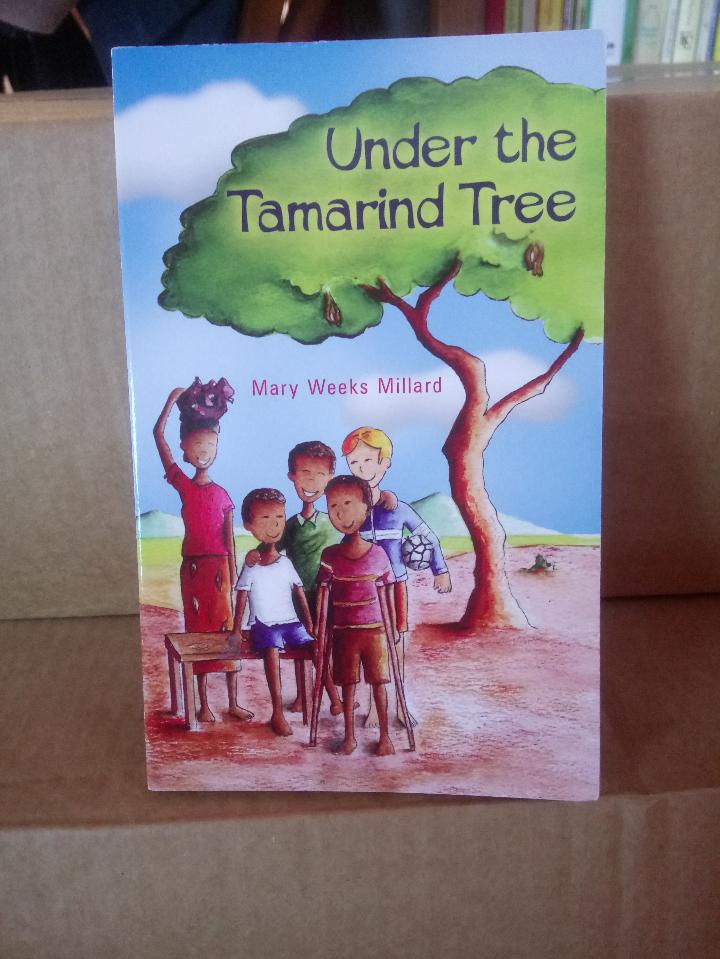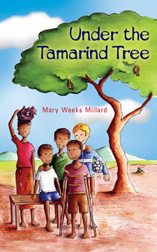Description
Where else can you read about talking drums and the Village of the Dead Snake? 🙂
Chapter One
The drums started to beat. You could could hear them for miles around. They were the “talking drums” that sent a message to the villages in the area. Not everyone could understand the talking drums these days because they weren’t used very often, and the young people hadn’t learned their language, but everyone knew that something important must be happening.
Hearing the drums, the older people stopped and listened, and then passed the message on. “We must all meet in the village of Ruga at the eleventh hour, under the Tamarind Tree.” In Rwanda the day begins at six in the morning, so the eleventh hour was five in the afternoon. It was a good time to meet, for school was over, and the markets finished, but it was still light.
Ishimwe, who was twelve years old, was selling clothes at the market a few miles from her home in the Village of Hope when the drums began to beat. Although she didn’t understand their message, other stall holders told her what they were saying. There was a buzz of excitement in the marketplace and almost everybody began to pack up their goods.
It was quite a long walk home for Ishimwe along the dusty road. She wanted to prepare the evening meal before she went to the meeting. She was just about to unlock the door of the little house where she lived with her two younger brothers, Shema and Maji, when she heard her best friend and neighbour, Frida, call out to her.
“Did you hear the drums?” Frida asked. “Auntie Delphine has been round to tell us to go to the meeting under the tamarind tree in Ruga.” Auntie Delphine was the social worker who supervised the children who lived in the Village of Hope. This special village had been built for child-led families who had no parents to look after them. They had been orphaned in the terrible war which had devastated the country a few years earlier. Since then, Ishimwe and Frida had both become “mothers” to their younger brothers and sisters.
“I heard the drums,” said Ishimwe. “I wonder what the meeting is all about. It must be very important! People in the market were saying that it’s probably a message from the government.”
“As soon as the others get home from school, lets go to Ruga together,” suggested Frida. Ishimwe agreed.
Ishimwe sang as she ground the millet and prepared the meal in her little home. At the market she had managed to sell quite a few of the clothes she had made, and so she sang a happy song of thanks to God. She was a skilled dressmaker, and although she did not own a sewing machine, she was able to use one which belonged to the mother of her brother’s best friend, Sam. Sam and Mama Grace lived in Ruga with her elderly parents. The two families were great friends and Mama Grace helped them a lot.
As soon as the younger children arrived home from school, the two families set off for Ruga. The children had heard the talking drums at school and their teachers had told them the message. By the time the little group reached Ruga, a large, noisy crowd had gathered under the large tamarind tree in the centre of the village. People who lived nearby had brought out benches from their homes and placed them around the tree. These were for the elderly to sit on, and also for the important people who had called the meeting. Shema looked around to see if he could spot the “Old People” as Sam’s grandparents were called. He saw them sitting on a bench, and Mama Grace and Sam were standing near them. Shema beckoned Ishimwe and the others to join them.
People were arriving from all directions; men and women coming straight from their gardens carrying hoes, others coming from the market and from work. There were children from several schools, the policeman, the pastor, his wife and family. In fact everyone Ishimwe knew was there, and many people she had never seen before. There was a great sense of excitement. Why had they been called to this meeting? What was going to happen? Would it be good news, or would it be more taxes and more forms to fill in?
After a few minutes a large black car with tinted windows drove up. Several important looking people got out of the car and came to the benches which had been reserved for them. The village Elder welcomed them and they were invited to speak. A very tall young man in a smart grey suit stood up and greeted the crowd. He thanked them for coming and began to explain the reason for the visit.
“I have some very good news for you all,” he said. “I work for the government, and we have decided that this region of Rwanda needs help. We understand that there are not many jobs round here and some of you are very poor. There are many widows and orphans from the war. Other countries of the world have been sending money to help us and so we have decided that Ruga would be a good place to build a hospital!”
When the people heard that they began to cheer and clap! What wonderful news!
“We will begin in a small way, with a clinic,” the man continued with a smile. “That will happen very soon, because the clinic building will arrive on a big truck and be put together here. Some land will need to be cleared for it, then a much larger piece of land will have to be cleared for the hospital. That will take longer, but there will be many jobs for local people to help with the building.”
The people cheered again, for it was hard to find work in the villages. When there is no work, there is no money for food, or for school fees.
The man spoke again. “That is not all! A new, good road will be laid, wells will be dug for a good clean water supply and electricity is to be installed. After that, a new international airport is to be constructed not too far away. It will take some years to construct, but will be useful for people coming to both Rwanda and Burundi.”
At this the cheering was so noisy and went on so long that the village Elder had to beat the drum to restore order! “Now,” said the man from the government, “We would like to introduce Dr. Nnozi to you.” A kind looking man stepped forward, smiling and waving to all the people.
“I will be coming to live here in the next few weeks,” said Dr Nnozi, “and I will bring some nurses with me, so we can start treating sick people as soon as the clinic has been assembled. The clinic will have a small operating room as well as a consulting room, a ward with six beds and a small laboratory to do tests for malaria and other diseases. Also,” he continued, “another doctor and his family are coming from England, and they plan to live and work here for at least two years, to help us get the clinic established.”
After this wonderful news people were asked to come forward if they had questions. Everyone was so surprised by what they had heard that very few people could think of anything to ask. Delphine, however, did have an important question. “Sir,” she said, “I am the social worker for the orphans’ village here. Will the children be able to go to the hospital and get help, or will it be too expensive?”
“I am glad you asked that,” replied the official. “The clinic will have a scheme which everyone can join. Every person can pay in a few francs every week, and when they are sick they take their card with them and will be treated, even if the treatment costs more than the money they have paid in.”
“Thank you,” said Delphine, “that sounds like a very good scheme.”
The officials left and the villagers began to talk among themselves. It all sounded too good to be true! To have a hospital, good water, electricity, a proper road and even an airport in the area! Their lives would be transformed! There would be work for the men and women for many years while these things were being built and then people would be needed to work in the hospital and the airport, too!









Jan –
This is a lovely story for children, charting the progress of a new missionary kid to Rwanda, and how he makes friends with the local children. Recommended!